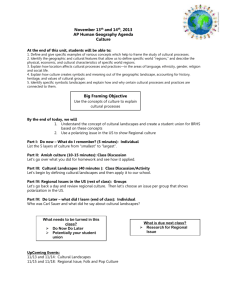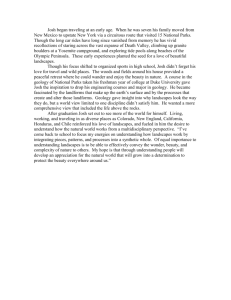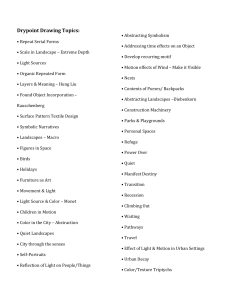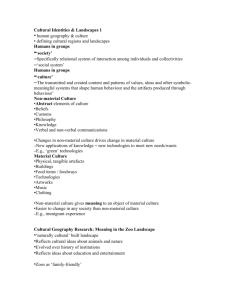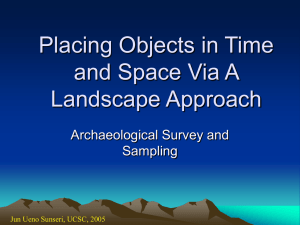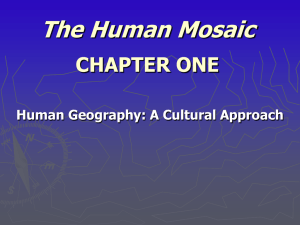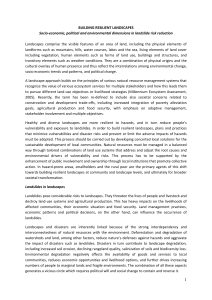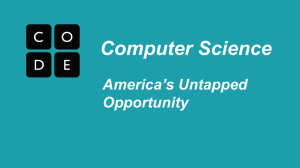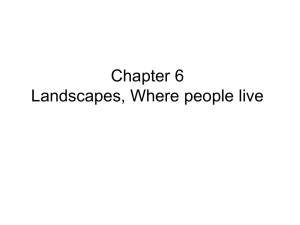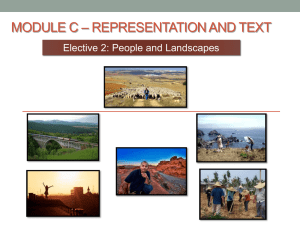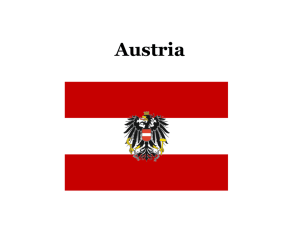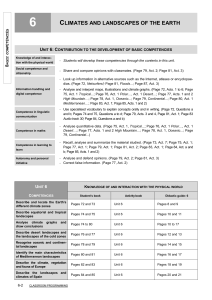Preparing Our Future Teachers for Learning and
advertisement
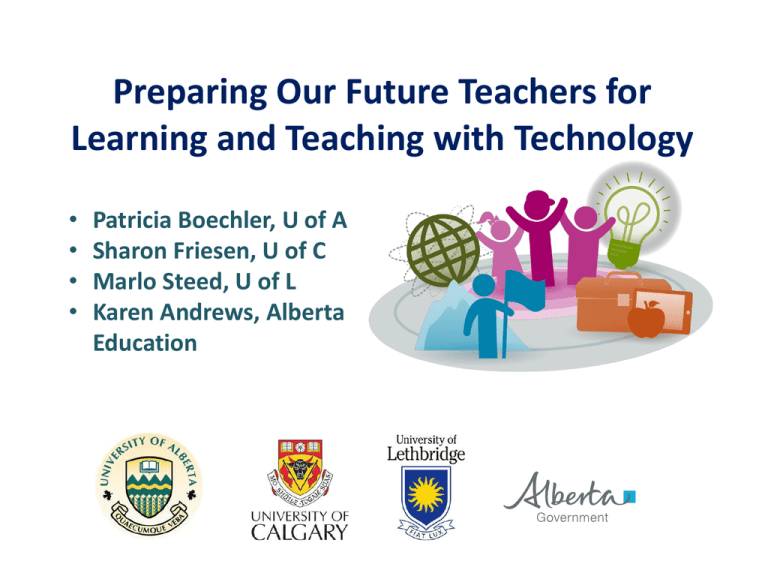
Preparing Our Future Teachers for Learning and Teaching with Technology • • • • Patricia Boechler, U of A Sharon Friesen, U of C Marlo Steed, U of L Karen Andrews, Alberta Education Policy Directions Policy Direction 3: Professional Learning Teachers, administrators and other education professionals develop, maintain and apply the knowledge, skills and attributes that enable them to use technology effectively, efficiently and innovatively in support of learning and teaching. Page 30 LEARNING AND TECHNOLOGY POLICY FRAMEWORK Changing Landscapes Dr. Patricia Boechler, Associate Dean (Research), Faculty of Education, University of Alberta LEARNING AND TECHNOLOGY POLICY FRAMEWORK Changing Landscapes Undergraduate programming EDU 210 – Introduction to Educational Technology (core course) This course examines frameworks, trends, issues and futuristic scenarios on the role of technology in education. Students will gain hands-on experience of using technology, with a special emphasis on strategies for integrating technology into the school curriculum. Through interactive lectures and flexible labs, this course allows students to experience and evaluate a variety of technologies for learning environments. As part of the course, students develop a professional learning network, create and populate an ePortfolio, and work towards establishing how technology fits within their developing teaching philosophy. LEARNING AND TECHNOLOGY POLICY FRAMEWORK Changing Landscapes https://vimeo.com/user17018223/review/112511547/94411a517c LEARNING AND TECHNOLOGY POLICY FRAMEWORK Changing Landscapes Technology Integration into Courses • Integrating technology into subject area courses - Faculty level - Technology Knowledge Skills and Attributes (TKSA’s) • Integrating content into technology courses - Content area assignments within Senior level tech courses LEARNING AND TECHNOLOGY POLICY FRAMEWORK Changing Landscapes Dr. Sharon Friesen, Vice Dean, Werklund School of Education, University of Calgary LEARNING AND TECHNOLOGY POLICY FRAMEWORK Changing Landscapes Undergraduate • Technology-rich assignment in each course, (robotics, video, webpages, blogs, etc.) • Support for instructors and students. Graduate • Learning with technology certificates, masters, & doctoral. • Leadership pgms all have leading with tech courses. • Courses offered online at undergrad & grad levels LEARNING AND TECHNOLOGY POLICY FRAMEWORK Changing Landscapes Dr. Marlo Steed, Associate Professor, Faculty of Education, University of Lethbridge LEARNING AND TECHNOLOGY POLICY FRAMEWORK Tech Integration as Tool Changing Landscapes Senior Undergraduate Programming Increasing 400 level technology courses and certificates: • • • • Robotics Video Game Creation Virtual and On-line Teaching Special Topics (emerging technologies) • Issues and Trends ( Technology related issues in Education) LEARNING AND TECHNOLOGY POLICY FRAMEWORK Changing Landscapes Enriched Graduate programming Educational Technology MEd and PhD • Educational Technology research internships LEARNING AND TECHNOLOGY POLICY FRAMEWORK Tech Integration as Problem Solving Attributes of the Tool Dimensions of Problem/Outcome Attributes of the Tool Dimensions of Problem/Outcome portray review ideas in a motivating way easily create this where the group is share ideas Attributes of the Mobile Video Dimensions of Problem/Outcome capture action, portray review ideas in a movement, voice, sounds, motivating way looks, emotion, etc. (Video capture capability) mobile device (iPad with easily create this where video camera and video the group is editing software) post on Internet video share ideas service (e.g. Youtube or Vimeo) Attributes of the Mobile Video Dimensions of Problem/Outcome capture action, portray review ideas in a movement, voice, sounds, motivating way looks, emotion, etc. (Video capture capability) mobile device (iPad with easily create this where video camera and video the group is editing software) post on Internet video share ideas service (e.g. Youtube or Vimeo) Effective Integration Digital Native Issues Wang, S-K. et al. (2014). An Investigation of Middle School Science Teachers’ and Students’ Use of Technology Inside and Outside of Classrooms: Considering whether digital natives are more technology savvy than their teachers, Educational Technology Research & Development. DOI 10.1007/s11423-0149355-4 Wisdom Modeling Creating a Culture of Innovation • • • • • • PD workshops for Faculty Soupers Twitter Initiatives Tech Integration Position Public Ed Videos Showcase Monitors Current Status Year 1 Liberal Education ? Year 2 Major/ 2500 ?/e-portfolio Year 3 PS I & 5 courses (Major) Integration & CT Module Year 4 PS II & 5 courses (Major) Integration Year 5 PS III & 3 electives 1 foundation Integration & tech courses M. Ed. Integration Grad Twitter Pilot E-Portfolio IT Leadership Ed 3508 C. T. in Education 21st Century Learning, Framework, Publishing ePortfolio Weebly Tech Integration & Presentations Presentation Brainshark Interactive Learning LessonsSmartboard Scholarly Inquiry, Management/Sharing Search Engines Cloud Services Concept Mapping Concept Mapping tools Digital Citizenship, Web Quests & Online Web Aware Concept Map New Media & Web Conf VC Session – Tyrrell Mobile Learning – Flipped Classroom Review – iPad video Electives Ed 4766 Web-based Learning Ed 4765 New Media and Learning Ed 4762 Problem Solving with C. T. Ed 4767 Web-based Teaching Ed 4760 C. T. in the Classroom Ed 4769 Issues: VR in Education Ed 4767 Internet and Education Related Non-education Courses Ed 4391 Philosophy of Technology in Ed Specialization in Ed Tech Outcome • preparing students who are competent, confident and discriminating in the use of communications technology in teaching and learning • life long learners LEARNING AND TECHNOLOGY POLICY FRAMEWORK Group Discussion: Ensuring that teachers have the attitudes, skills and knowledge for effective use of technology in a student-centred environment requires articulation, collaboration and coherence between the K-12 education system and faculties of education 1. What technology-related skills do we expect a newly graduated teacher to have? 2. How can we support new teachers to use/sustain and continue to develop skills? What works? 3. What can we do to build coherence between K-12 and faculties? Thank you!
